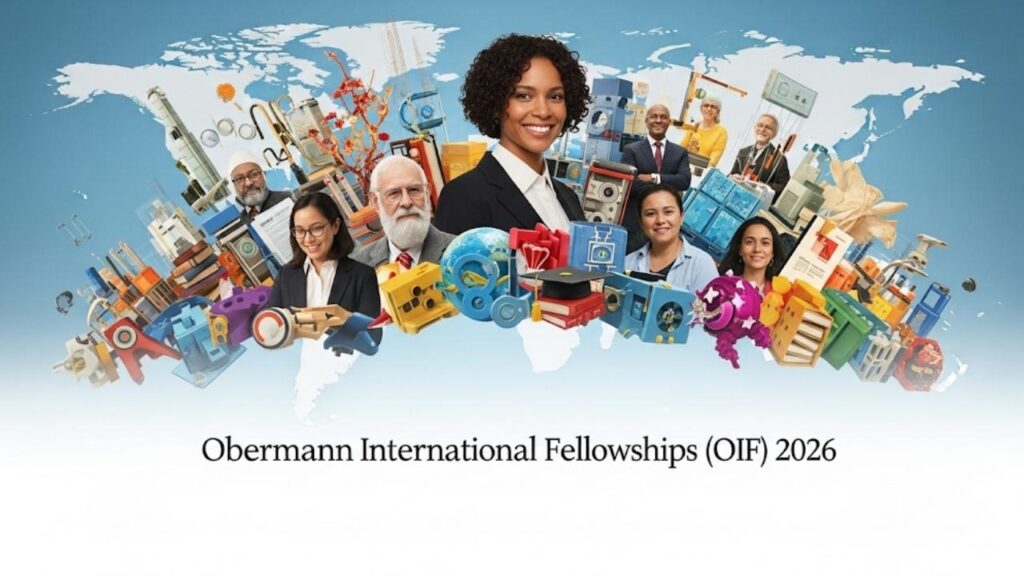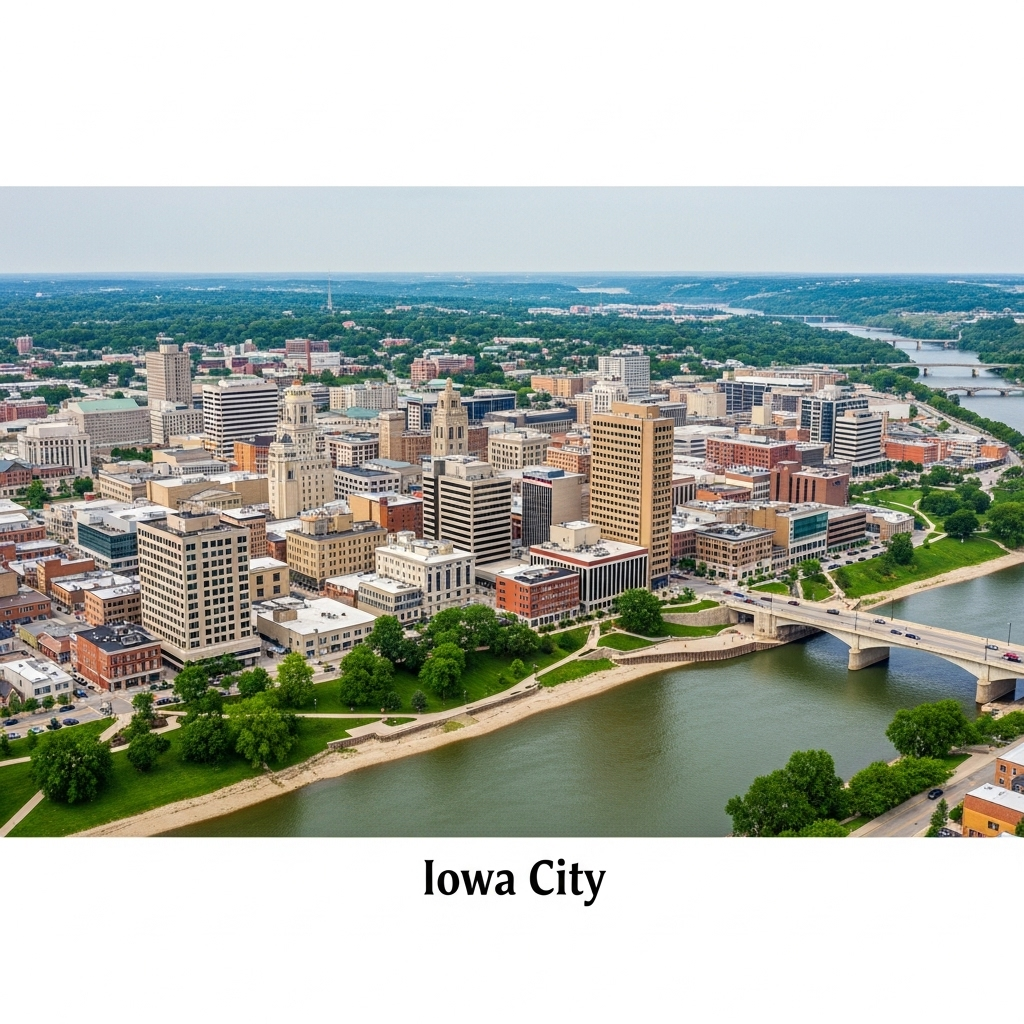Are you an international researcher or artist dreaming of an immersive, collaborative experience at a renowned institution? The Obermann International Fellowships (OIF) 2026 at the University of Iowa could be your gateway to an unparalleled academic journey. This fellowship offers a unique opportunity to engage with a vibrant intellectual community, deepen your research, and forge lasting international connections.

Your Pathway to Global Scholarship: What the OIF Offers
The Obermann International Fellowships (OIF) are designed to foster intellectual exchange and collaborative work at the University of Iowa.2 Supported by the Obermann Center for Advanced Studies, International Programs, and the Center for Social Science Innovation, these fellowships provide dedicated time, space, and resources for scholars and artists from outside the United States.3 In my experience advising students, one common hurdle for international applicants is finding programs that genuinely support their integration into a new academic environment, and the OIF truly excels in this aspect.
Obermann International Fellowships (OIF) 2026
| Key Fact | Detail/Statistic |
| Application Deadline for Spring 2026 | October 24, 2025 |
| Fellowship Duration | Minimum 2 weeks, maximum 1 UI academic semester |
| Travel & Lodging Reimbursement | Up to $2,000,Obermann Center for Advanced Studies FAQ |
| Visa Type Required | J-1 Visa ,Obermann Center for Advanced Studies |
| UI Health Insurance Coverage | Provided for the duration of stay |
The Obermann International Fellowships (OIF) 2026 at the University of Iowa present an extraordinary opportunity for international researchers and artists to elevate their work and become part of a vibrant global academic network. It’s a chance to dedicate focused time to your intellectual passions, collaborate with leading experts, and experience the rich academic environment of a top American university. The journey to securing such a prestigious fellowship may seem daunting, but with careful preparation, a compelling proposal, and a clear vision, you can successfully navigate the process.
Who Is the Obermann International Fellowship For?
The OIF welcomes active researchers and artists based outside the United States. Whether you’re an academic at an accredited institution or an independent researcher with a proven track record of excellence, if your research aligns with existing expertise at the University of Iowa, you’re encouraged to apply. The fellowship specifically seeks individuals whose work can introduce new and relevant research agendas or regions to the UI campus, leading to lasting scholarly contributions.
Eligibility Essentials
To be considered for the Obermann International Fellowships 2026, you must meet certain criteria:
- Active Researcher/Artist Status: You must be an active researcher at an accredited institution of higher learning outside the U.S. or an independent researcher/artist with a strong record of accomplishment based outside the U.S.
- Research Alignment: Your area of research or creative work must have a direct equivalent at the University of Iowa. This is crucial for collaborative opportunities.
- English Proficiency: A good command of English is essential to fully participate in UI academic activities. Proficiency can be demonstrated through recognized tests (TOEFL or IELTS), signed documentation from an academic institution, or an interview with the Obermann Center staff.
- Residency Requirement: Fellows are expected to reside in the Iowa City area for the duration of their fellowship and actively participate in the Obermann Center’s vibrant activities.
- No Prior U.S. Visas for Research (with exceptions): Generally, you cannot come on an F-1, B-1, or B-2 visa. J-1 visas are required. If you are already in the U.S. on a J-1 visa, it’s best to contact the Obermann Center directly to discuss your eligibility before applying.

The Fellowship Experience: What to Expect
Beyond the financial and logistical support, the Obermann International Fellowships offer a rich academic and cultural experience. Fellows gain temporary University of Iowa affiliation, providing access to extensive library resources and a host of scholarly exchanges. This includes seminars, lectures, and invaluable introductions to UI researchers who can become future collaborators.
Benefits and Support
Securing an international research fellowship like the OIF comes with significant advantages:
- Financial Reimbursement: Each fellow receives up to $2,000 for travel and lodging expenses. It’s important to note that this covers a portion of the costs, and applicants are encouraged to secure additional funding from their home institutions.12 Reimbursements are typically processed via direct deposit or check mailed to your home address within 3-4 weeks after your fellowship ends.
- Health Insurance: The Obermann Center covers the cost of a University of Iowa health insurance plan for the duration of your stay, a mandatory requirement for J-1 scholars.
- Visa Support: The Obermann Center will pay for your $185 J-1 visa application fee. However, you are responsible for the $220 non-refundable SEVIS (Student and Exchange Visitor Information System) fee. They will provide an official letter of invitation for institutional and visa purposes.
- Dedicated Workspace: Fellows are provided with office space at the Obermann Center, offering a conducive environment for focused research and writing.
- Library Access: Full access to the University of Iowa’s extensive library system, a treasure trove of academic resources.
- Networking and Collaboration: Structured opportunities to connect with UI faculty, graduate students, and fellow international scholars, potentially leading to long-term collaborations.
Crafting a Winning Application for the Obermann International Fellowships 2026
The application process for the Obermann International Fellowships is straightforward, but success hinges on a well-prepared and compelling submission. Remember, the deadline for Spring 2026 fellowships is October 24, 2025. I’ve seen many successful applicants focus on articulating a clear vision for their research and how it aligns with the University of Iowa’s strengths.
Essential Application Components
Your online application will typically require the following:
- Curriculum Vitae (CV): A comprehensive overview of your academic and professional background, publications, and relevant experiences.
- Desired Start and End Dates: Specify your preferred fellowship period, ensuring it falls within the Spring 2026 semester (January 20 to May 8, 2026).
- Research Proposal: This is arguably the most critical component. Your proposal (maximum 2,000 words) should clearly outline your research project, its significance, methodology, and a strong rationale for its connection to the University of Iowa. Highlight how your project complements existing research at UI and what unique perspectives you bring.
- One-Page Bibliography: A concise list of key sources relevant to your research proposal.
- Reference Letters (if applicable): If you do not hold a Ph.D. or other terminal degree, you will need to submit two reference letters.
- Proof of English Proficiency: As mentioned earlier, this can be a TOEFL or IELTS score, a transcript, or a request for a video interview.
- Passport Photo Page & Financial Statement: Upon acceptance, you will need to provide a copy of your passport’s photo page and a financial statement demonstrating at least $1,000 per month for living expenses for the duration of your stay. If you plan to bring J-2 dependents, you’ll need to show an additional $500 per month for each dependent.
Tips for a Standout Proposal
- Clearly Define Your Project: What specific question are you addressing? What is your methodology? What are your expected outcomes?
- Articulate UI Connection: Research the University of Iowa’s faculty, centers, and institutes. Identify specific scholars or departments that align with your work and explain why the University of Iowa is the ideal place for your research. This shows you’ve done your homework and are genuinely interested in collaborating.
- Show Impact: How will your research contribute to your field? How will it benefit the University of Iowa community?
- Be Concise and Persuasive: Every word counts. Avoid jargon where possible, and if you must use it, explain it clearly. Your proposal should be engaging and convince the review committee of your project’s merit and your capacity to execute it successfully.
- Seek Feedback: Before submitting, have trusted mentors or colleagues review your proposal. Their fresh eyes can catch errors or suggest improvements in clarity and argument.
Life as an Obermann International Fellow
Beyond the academic rigorousness, Iowa City offers a welcoming and supportive environment. Fellows are encouraged to immerse themselves not only in the university’s intellectual life but also in the local community. The Obermann Center often organizes events and activities to facilitate connections among fellows and with the wider University of Iowa community.

A Comprehensive Guide to the South-East Asia Fellowship (SASEAF) 2025
FAQ
Q1: Can my family accompany me on the Obermann International Fellowship?
A: Yes, your partner and family can accompany you. However, the Obermann Center cannot assist with their visa applications, health insurance, or other related matters. You are responsible for these aspects for your dependents.
Q2: How long does it take to obtain a J-1 visa after receiving the invitation letter?
A: The timeframe for obtaining a J-1 visa can vary significantly depending on the operating status and capacity of the U.S. embassy or consulate in your country. Most applicants typically receive their visas within four months. It is advisable to apply as early as possible.
Q3: Does the Obermann Center assist with finding housing in Iowa City?
A: While the Obermann Center does not have staff dedicated to helping visiting scholars find housing, they can connect you with local housing resources. Fellows are responsible for securing their own accommodation.
Q4: Can I apply if I am currently in the U.S. on a different visa type (e.g., F-1, B-1/B-2)?
A: No, the program requires a J-1 visa. If you are already in the U.S. on a J-1 visa, you may be eligible, but you should email the Obermann Center at [email protected] before applying to discuss your specific situation.






